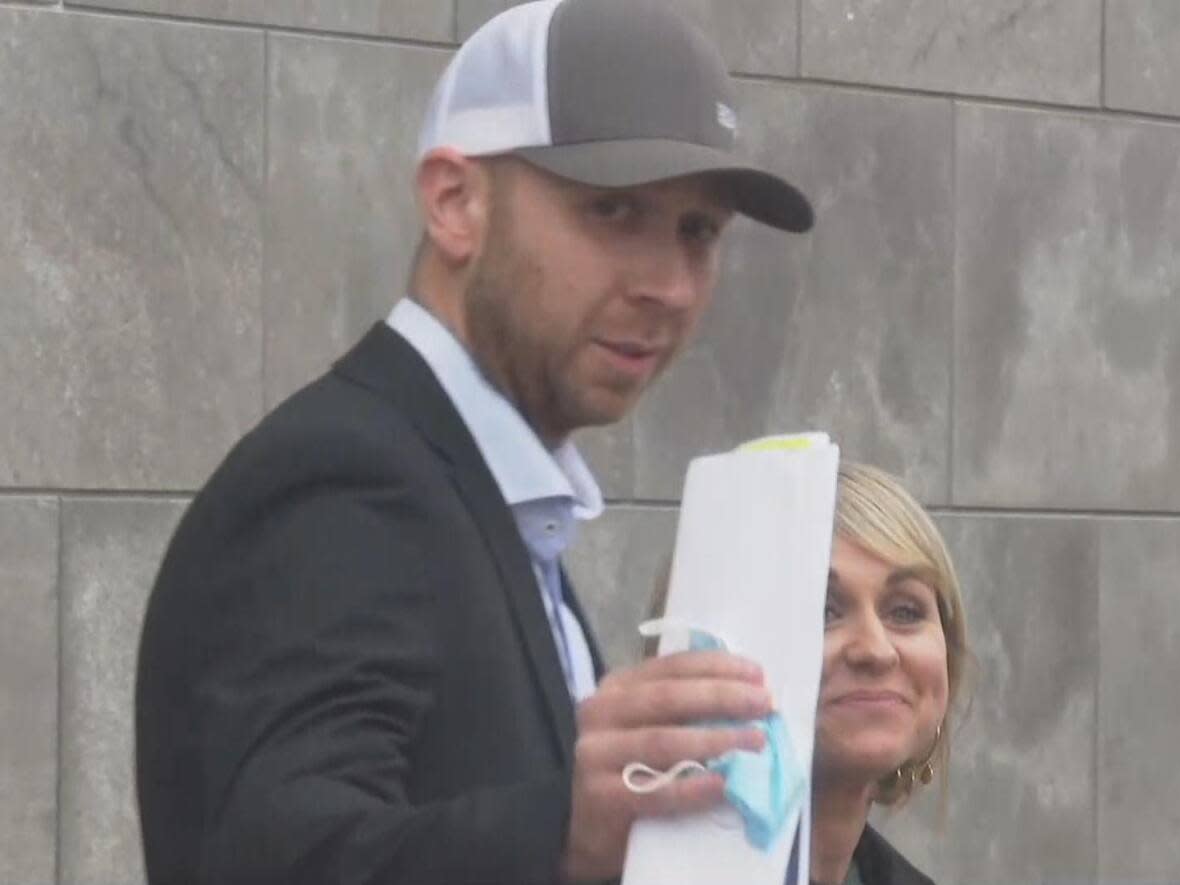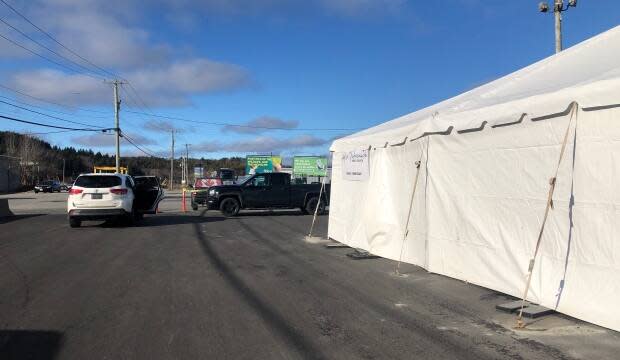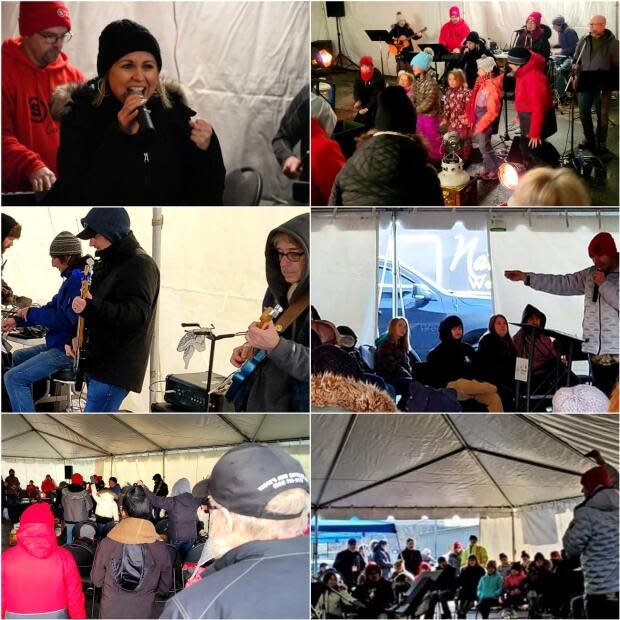Saint John pastor's COVID-related legal troubles are over after ruling by chief justice

The legal troubles for Philip Hutchings and His Tabernacle Family Church are now over.
Chief Justice Tracey DeWare of the Court of King's Bench has dismissed contempt of court allegations against Hutchings.
In a decision dated Feb 2, DeWare said it was impossible for her to determine whether a tent could be considered an "enclosed space," so how could the church and its officials know.
Deware said she was unable to "clearly and unequivocally" conclude that the tent was an enclosed space as described in the Mandatory Order, "and as such, the Respondents cannot be held in contempt of the order."
Through his lawyer, Hutchings was asked for comment, but none was provided. On his Facebook page, Hutchings wrote, "PRAISE GOD…IT'S FINALLY OVER." He thanked his lawyer, Rebel News and the Democracy Fund.
On its website, the Democracy Fund said it "funded" the legal defence of the church and its officials.

Defence lawyer Jonathan Martin said DeWare's decision "concludes everything" against Hutchings and the church, which now goes by the name Higher Life Church. Martin praised the decision and due process.
"On a rushed emergency application last year, without hearing from our side at all, one judge found that the church was clearly in violation of the Mandatory Order," Martin said by email on Monday.
"Now, after due process was followed, the Chief Justice came to the opposite conclusion, which we have always believed was the right one."
Original ticket within in November
In November, the province withdrew the original $580.50 ticket that started it all.
At the time, Department of Justice spokesperson Geoffrey Downey said the tickets were withdrawn because "the Crown determined the evidence no longer provided a reasonable prospect of conviction.
The ticket was issued to Hutchings for violating the Mandatory Order following a religious service at the church's former location in Saint John.

That ticket eventually escalated into motions by the province, orders from the court, a seven-day remand in jail for Hutchings, admissions of contempt of court and a successful appeal to the Appeal Court of New Brunswick.
Along the way, the church left its former location and held services in a commercial tent in Saint John before moving operations to a property in Garnett Settlement, where members plan to erect a permanent church building, according to an environmental impact assessment completed last year.
The history of the case
His Tabernacle Family Church first came to the province's attention in September 2021, shortly after the government updated its emergency order to include several restrictions on religious gatherings.
Hutchings posted on social media that his church would not be following the restrictions.
That led to closer scrutiny by Public Safety officials, and a ticket was issued to Hutchings after officials visited the church on Oct. 3 for Sunday service.
Not long after, the province applied to the court for a preliminary injunction that would prohibit the church from holding "public gatherings which are in contravention" of the Public Health Act and the Emergency Measures Act."
On Oct. 8, the parties signed a consent order where Hutchings agreed to "make all reasonable efforts to ensure compliance" with the rules governing faith-based gatherings.
A week later, Hutchings was remanded to jail for a week after violating the order.

By Nov. 7, 2021, the church moved its weekly church service to a commercial tent set up in a parking lot in Saint John.
The province maintained the tent constituted an enclosed space and was therefore subject to the restrictions in the Mandatory Order. The province asked that Hutchings and several other church members be found in contempt of court for not imposing masks, social distancing and other restrictions.
There were orders and interim orders, trial dates set and adjourned, and appearances in Provincial Court, Court of Queen's Bench, and the Court of Appeal for more than a year. Many of those discussions centred around whether a tent with flaps qualified as an enclosed space.
In last week's decision, DeWare said the province didn't tell the church that whether it would be charged would depend on how it used the tent.
"The Applicant was aware that initially the Respondents were using the commercial tent with the side walls up. My understanding of the Applicant's position is that such activity would not be in violation of the Mandatory Order as it relates to 'public indoor spaces'. However, once all four side walls of the tent were down, then the Applicant was of the view that the Mandatory Order had been breached."
It was incumbent upon the province to tell the church "at what point they would be in breach of the Mandatory Order," Deware wrote.

With all four sidewalls down, a tent could "arguably" be considered an "enclosed space," wrote Deware.
"Therefore, there is a point where the use of the commercial tent becomes an 'enclosed space'. However, as I write this decision, it is unclear to me when that occurs and counsel for the Applicant were unable to provide a clear answer to the question."
Given that, DeWare said she "struggles to understand how the Respondents were to know when the tent became an 'enclosed space'."
She wrote, "It is difficult for this Court to conclude beyond a reasonable doubt that these Respondents, in moving the church services to a commercial tent, knew that they were breaching the Mandatory Order and did so intentionally."
While it is "conceivable" that a commercial tent with a roof and "weighted walls" could be considered an "enclosed space," DeWare said she was unable to determine that the tent was a "public indoor space" or an "enclosed space."


